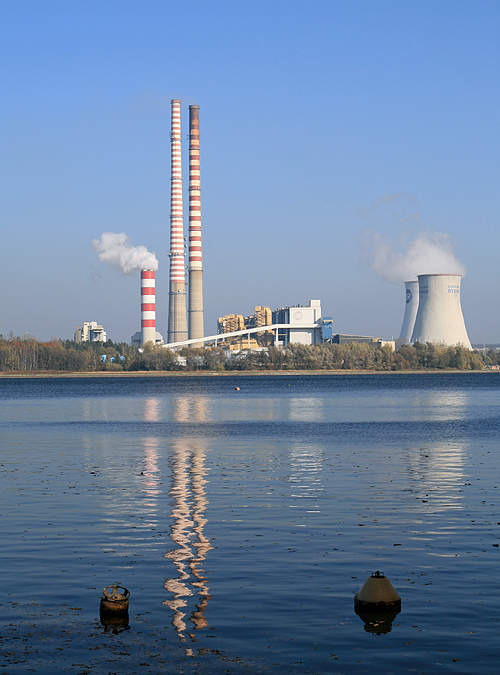Ammonia co-firing trials to commence in the Philippines, Thailand and Chile
By Geofrey Njovu on February 27, 2023
Philippines

JERA has signed an MoU with Aboitiz Power Corporation to commence a joint feasibility study on ammonia co-firing at AboitizPower’s existing coal-fired power plants and further development of the ammonia and hydrogen value chains in the Philippines. Aboitiz currently owns a fleet of coal plants throughout the country, ranging in size from a few hundred MWs (one or two generating units), to one-plus GWs.
The study will assess the possibility of ammonia co-firing at AboitizPower’s coal-fired power plants and establish the optimal co-firing rate. Aboitiz is also the largest owner and operator of renewable energy in the Philippines according to installed capacity, and is determined to decarbonise its power generation portfolio as it aims to increase renewable energy capacity by 3,700 MW by 2030.
By joining forces in the pursuit of greener fuels, our two companies are not only advancing the cause of sustainability, but also paving the way for a cleaner and more vibrant future. Ammonia offers a compelling solution for decarbonizing the power sector, and by looking into it, we are taking a step towards developing the infrastructure needed to support the ammonia and hydrogen value chains.
Sabin Aboitiz, AboitizPower Chairman in his organisation’s official press release, 16 February 2023
Through this collaboration, we will support Aboitiz’s power decarbonization efforts while also considering additional opportunities for advancing technology development in the Philippines. This MOU allows JERA to leverage its experience and capabilities to support both AboitizPower and the Philippines to reach their emissions targets.
Satoshi Onoda, JERA President in AboitizPower’s official press release, 16 February 2023
Thailand
This announcement demonstrates continued momentum for ammonia co-firing as a method of choice for reducing emissions in existing power plants globally. In January, Mitsubishi Heavy Industries (MHI), an industry leader in co-firing technologies, signed an MoU with BLCP Power Limited (BLCP), a Thai Independent Power Producer, to commence a feasibility study for the introduction of ammonia co-firing at BLCP’s Map Ta Phut coal-fired power plant in Thailand. Map Ta Phut has a generating capacity of 1,434 MW, and began operations in 2006-7.

Supported by Mitsubishi Power -its power solutions brand- MHI will conduct a study on the supply of ammonia burners, boiler facilities and other equipment needed for ammonia co-firing. MHI and Mitsubishi Power have supplied over 25 GW of power generation equipment to Thailand, accounting for more than half of the country’s generation capacity. The Asian country aims to reach carbon neutrality and net zero emissions by 2050 and 2065 respectively.
Signed during the Japan-Thailand Energy Policy Dialogue (JTEPD) held in Thailand’s capital Bangkok on January 12th, the project includes several other Thai and Japanese organisations: JERA, BPP, EGCO Group and Mitsubishi Corporation.
JERA will examine the procurement and transportation of ammonia fuel. It will also work with Mitsubishi Corporation to investigate the port, ammonia receiving and storage facilities to establish an integrated fuel value chain. BLCP, MHI, Mitsubishi Corporation and JERA will jointly conduct studies and develop plans to achieve up to 20% ammonia co-firing.
Chile

On December 6, MHI signed an MoU with Guacolda Energia SPA, a Chilean independent power producer , for the commencement of a feasibility study for the introduction of ammonia co-firing at the Electrica Guacolda Power Plant power plant in northern Chile. Located in Huasco, about 700 km north of Chile’s capital Santiago, the plant comprises five power generation units with a total output of 758 MW.
The study will comprise two phases, with the first, expected to run until 2024, focusing on 30% co-firing trials. Phase 2, expected to run from 2025 to 2026, will focus on finding potential solutions to any encountered problems, and a detailed demonstration plan.
A rational policy to reduce greenhouse gases should consider a gradual withdrawal from the use of fossil fuels, combining them with more climate-friendly energies such as green hydrogen, green ammonia and long-term storage technologies, in the most economical way possible but always safeguard the safety of the electrical system as a whole.
Guacolda Energia SPA Chairman Jorge Rodríguez in MHI’s official press release, 7 December 2022
By combining MHI’s innovative ammonia co-firing technology with Guacolda’s deep technical knowledge and power plant management know-how, we are confident that we can contribute to the further acceleration of decarbonization in Guacolda, and consequently in Chile.
Massahiko Hokano, Head of MHI SPMI Business Division in his organisation’s official press release, 7 December 2022
These developments add to a growing list of ammonia co-firing projects already underway in several countries including Singapore, Korea, Malaysia, India, Indonesia, and Japan. Both JERA and MHI continue to be significant players in these projects. The technology has potential to substantially reduce CO2 emissions at lower costs by utilising pre-existing infrastructure and expanding existing supply chains.